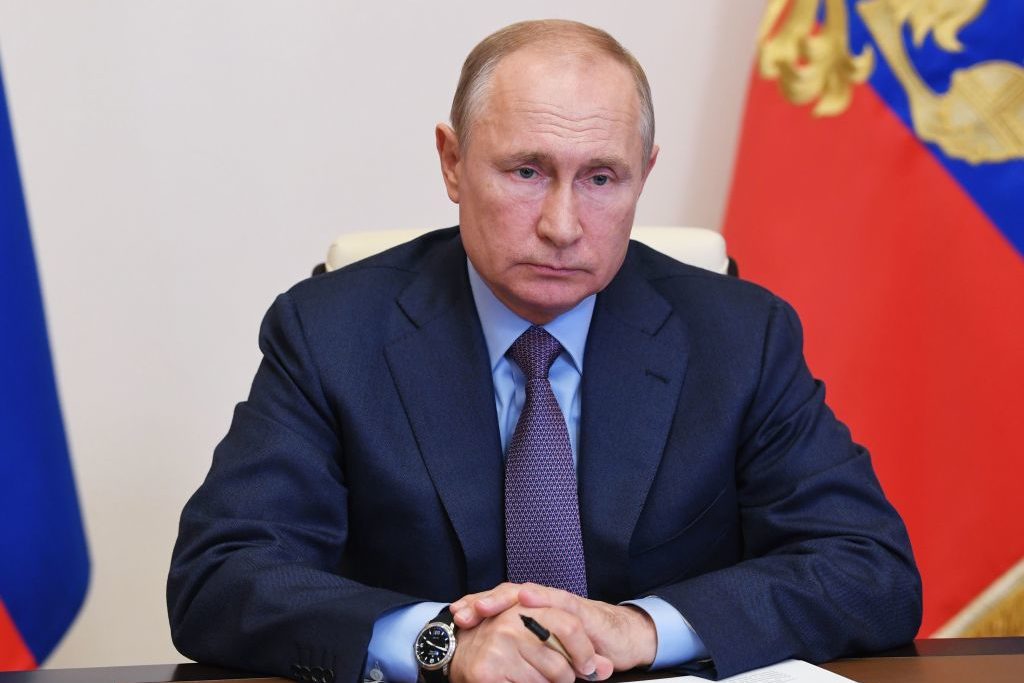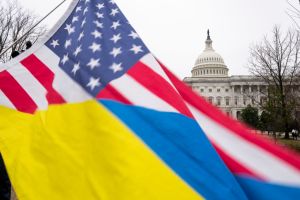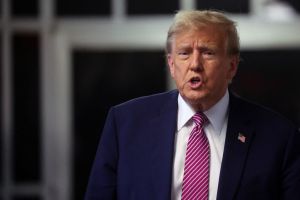Vladimir Putin’s traditional ways of dealing with crises don’t work with COVID-19. Unlike previous opponents he has faced, the coronavirus cannot be co-opted, jailed, invaded, bought off, forced into exile, or bullied into submission. And if this weren’t bad enough, it is fast becoming apparent that, in the fight against the pandemic, one of the Kremlin’s biggest problems is itself. Russia has been accused of spreading disinformation abroad, but disinformation is now hampering its response at home.
Russia’s response to coronavirus was initially impressive, shutting its 2,600-mile or so border with China in late January. But it has since been undermined by the nature of the system Putin has built in Russia. This system mixes democratic rhetoric with undemocratic intent. Formal institutions have been replaced by Putin’s personal control, creating what the Russia analyst Mark Galeotti describes as an ‘adhocracy‘. In this situation, the attribute Putin demands in his underlings is loyalty above all else, including competency.
Putin has argued that his is the best system to provide for and protect Russia and its citizens. And since the start of the pandemic Putin has sought to hallucinate that — in the words of his message on Easter Sunday, the holiest day for Russia’s Orthodox believers — the situation in the country was ‘under full control’. Given that demonstrating loyalty to the Kremlin is the best guarantee of professional development and personal betterment, who can blame officials for wanting to impress their superiors by falsifying the odd bit of COVID-19 data?
As of June 15, Russia had 537,210 confirmed cases of COVID-19, which is the third-highest number of cases globally. But it has registered just 7,091 deaths, in a country of 144 million or so people. Russia’s fatality rate is hovering around one percent — far below the global average of six percent — which Alexander Myasnikov, Russia’s COVID-19 information chief, has described as ‘a Russian miracle’. (Myasnikov has also called coronavirus ‘bullshit’.)
But the miracle is not what it seems. Moscow recorded 6,921 cases of pneumonia in January, a 37 percent year-on-year increase, yet did not register its first case of coronavirus until early March. (It was only in early April that officials said pneumonia patients would be treated as potential sufferers of COVID-19.) Last month, an audio recording was leaked of a conversation reportedly featuring Igor Artamonov, the governor of Lipetsk region, in which he told an unnamed official you need to ‘change (the) numbers’, or ‘people (will) think bad things about (the) region’. The release of country-wide demographic data for April was seemingly postponed so as not to undermine the official narrative of the pandemic’s low human cost.
Naturally, Russia’s authorities reject any criticism of systematic disinformation. Tatiana Golikova, a deputy prime minister, says that Russia’s methods for recording coronavirus cases and deaths are ‘exceptionally precise’ and that ‘We never manipulate official statistical data’. Not only this, but Russia’s authorities have gone on the offensive. Last month, its foreign ministry accused the Financial Times and the New York Times of ‘disinformation’ in their reporting of coronavirus, demanding retractions from each. The ministry’s spokeswoman Maria Zakharova has hinted that the two newspapers could lose their accreditations.
In April, Anastasia Vasilyeva, a doctor who has risen to national prominence for her criticisms of the state’s response, was questioned by the powerful investigative committee for allegedly spreading fake news about the coronavirus. She was also subject to a hit-piece on state-run TV, in what appears to be a concerted effort to spread damaging information — or ‘black PR’ — about her. (‘Black PR’ emerged in Russia in the 1990s and was initially used in the political sphere, but it has since spread to others, including business.)
[special_offer]
In the rush to demonstrate that the situation in the country is under control, the lockdown in Moscow — which was imposed in March — is being lifted. The city has registered more than half of all COVID-19 cases in Russia, and is still reporting approximately 2,000 new cases each day. But by June 23 pretty much everything will be open.
To understand why this is, it’s important to recall that the first half of 2020 was supposed to have been Putin’s coronation, during which he enshrined his personal power via a referendum on constitutional changes (on April 22) which would allow him to stay in power until 2036 and stimulated mass enthusiasm for his regime in a Victory Day parade (which marks the end of World War Two) on May 9. It originally seemed like COVID-19 had derailed Putin’s objectives. But it’s now clear that Putin did not cancel his plans; he simply rescheduled them. Victory Day is set to take place on June 24, and his referendum on July 1.
Both will take place in a radically different setting to the one initially envisaged. Putin’s approval rating fell to 59 percent in April, its lowest-ever figure. True, it has been declining for several years following an unpopular increase in the retirement age and five years of decline in real disposable incomes, but the Kremlin’s handling of the pandemic has accelerated and compounded this trend. Putin, it seems, wants to push ahead with his coronation while he still can.


















